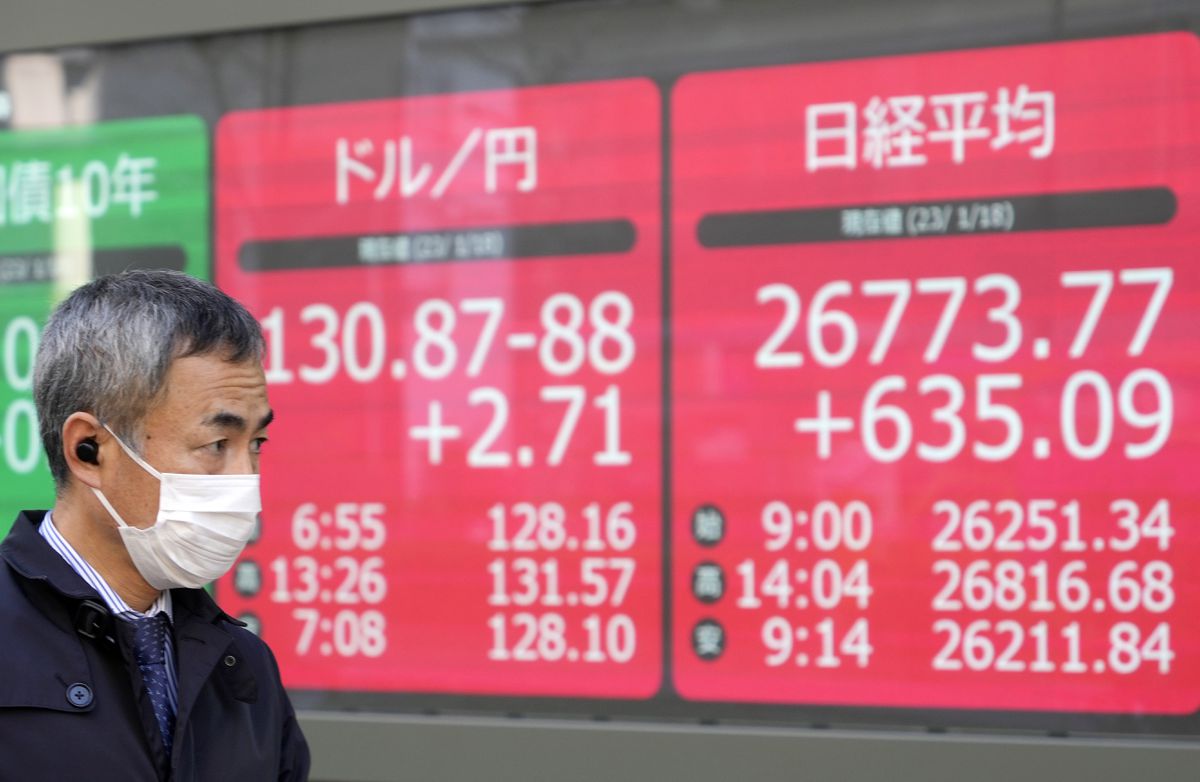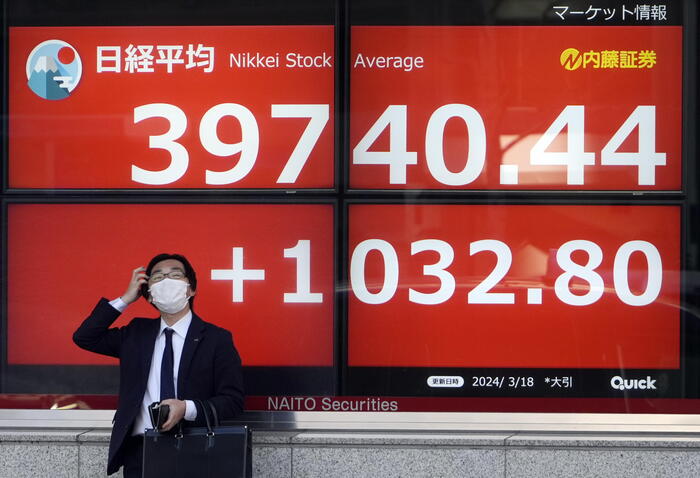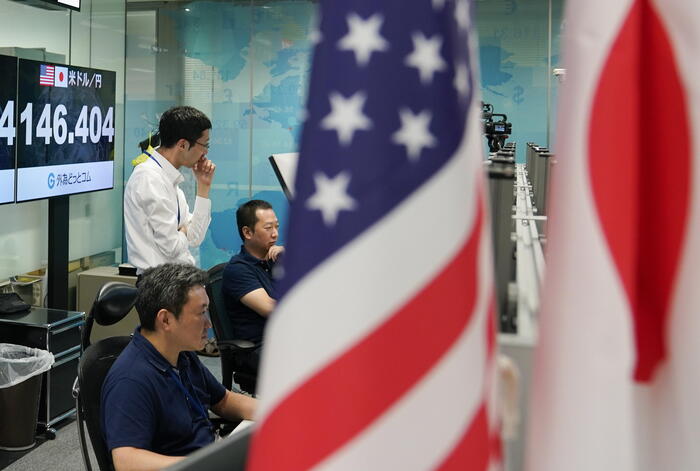The Bank of Japan (BoJ) has decided to keep the main measures of its ultra-easy monetary policy, including its 0.5% cap on 10-year bond yields, unchanged, despite a recent rebound in earnings.
In December, the Japanese central bank surprised markets by widening the range within which it allows yields on these bonds to fluctuate, a move investors perceived as a prelude to further tightening of Japan's monetary policy.
However, this Wednesday, the nine members of the Board of the Bank of Japan have voted unanimously to keep their policy of control of the long and short-term interest rate curve unchanged.
The yen plunged sharply after the Bank of Japan's decision.
The Asian currency has fallen 2.3% against the dollar and is heading for its worst day since March 2020, when the pandemic broke out.
The euro gained 2% to 141.1 yen and sterling rose more than 2% to 160.71 yen.
Some investors have been betting that the BOJ will be forced to tighten, or even unwind, its ultra-easy monetary policy as it cannot sustain the massive volume of bond buying needed to defend the bond cap.
More information
Tokyo reaches 4% inflation, the highest in four decades
After two days of a monthly meeting on monetary policy, the Japanese issuing institute has announced that it will keep the interest rate on short-term bonds at -0.1% and that it will continue to buy unlimited amounts of Japanese government debt in in the form of ten-year bonds, with the aim of maintaining its control over the yield curve around 0%, although it will allow fluctuations within the 50 basis point range.
Before the meeting, 10-year bond yields repeatedly breached the 0.5% ceiling, forcing the central bank to buy record volumes of bonds late last week.
According to the financial newspaper
Nikkei
, Japanese economists expected this decision, as most believed the central bank needs time to assess the impact of its December tightening, when it widened the yield band from 25 basis points to 50. “I think there was no other choice.
If the Bank of Japan widened the long-term yield range, it would not be able to keep ten-year yields around 0%.
The problem is that the risks of possible side effects are growing, since the liquidity of the market continues to decrease”, says Nabuyasu Atago, chief economist at Ichiyoshi Securities.
“Those consequences could cause a breakdown of the market mechanism, so attention will have to be paid to whether the Bank of Japan really has sufficient grounds to keep the 10-year interest rate at 0%,” he adds.
Many analysts argue that keeping interest rates so low will be unsustainable in the current inflationary environment.
The Tokyo Consumer Price Index (CPI), which is used as an early barometer of what will happen in the rest of the nation, reached 4% year-on-year in December, its highest level in four decades, double the figure set by the central bank to maintain price stability.
However, the Japanese monetary authorities consider that this situation is transitory, since it is a reflection of what is happening in the rest of the countries in the face of the global increase in the cost of raw materials and energy.
Under this premise, the governor of the Bank of Japan, Haruhiko Kuroda, who has been in office since 2013 and is one of the main defenders of Japan's ultra-flexible strategy to combat deflation, already announced in December that the Japanese economy is not prepared to accept a rate hike.
Kuroda will preside over his last meeting on March 9 and 10, before he ends his term on April 8.
Many analysts consider it unlikely that policy changes will take place before March 31, the end of the fiscal year for many local businesses.
“There is particular concern about how much 10-year government bond yields will rise if the Bank of Japan abandons its dovish policy.
Would it stabilize around 1% or would it suddenly skyrocket to 2%?
Ending yield curve control could lead to turmoil in the economy and markets.
It is difficult to foresee how progress will be made towards an exit," says Takeshi Minami, chief economist at the Norinchukin research institute.
In a separate report, the Bank of Japan has also released its inflation and economic growth projections for the 2022-2024 fiscal year.
The bank expects inflation to reach 3% for the fiscal year ending in March, up from 2.9% in October.
The forecast for the following year remains at 1.6%, while that for fiscal year 2024 goes from 1.6% to 1.8%.
Due to the differences between the monetary policy of the Bank of Japan and that of other reference entities, such as the US Federal Reserve or the European Central Bank, the yen suffered a strong devaluation against the dollar and the euro throughout 2022.
Although Japan's currency recovered somewhat after last month's adjustment, immediately after Wednesday's announcement it fell more than two units against the dollar.







/cloudfront-eu-central-1.images.arcpublishing.com/prisa/C3LDLHDAXBBCFCHWBPELHN64FU.jpg)

/cloudfront-eu-central-1.images.arcpublishing.com/prisa/YS736RHYZRGIRRV66X7MYCGVBU.jpg)





